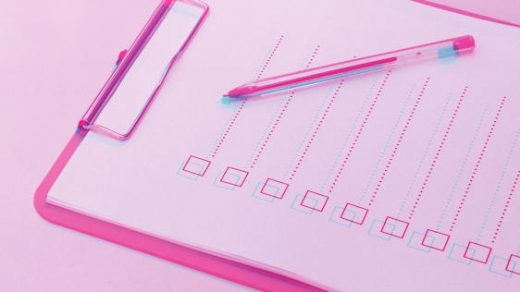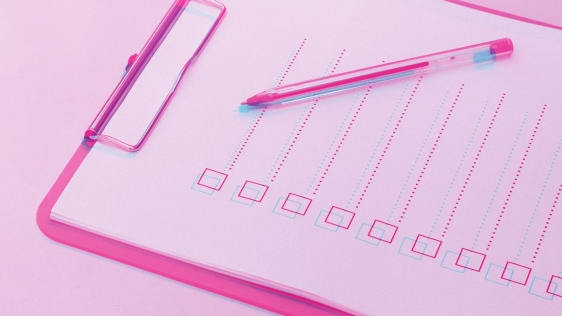Setting This Vague Daily Goal Totally Transformed My Productivity
Do your best. If it sounds like advice from a kindergarten teacher, well, I get it. Vague goals produce vague results, right? So I thought, too. But over the past few years I’ve discovered that, when combined with a system of concrete daily goal-setting, there’s one nebulous goal that can prove a surprising punch-in-the-gut reality check, and lead to concrete results. Skeptical? Hear me out.
Using Your “Best” As A Daily Diagnostic
Until the second year of my freelance writing career, I’d been able to rationalize away mediocre results, mostly because I didn’t have anything to perform for. As a freelancer, there weren’t any coworkers to compare myself against, and I didn’t have a boss handing out feedback all the time. But wanting to succeed, needing financial independence, and realizing it was up to me to obtain both, I looked myself in the mirror at the end of one day and asked myself, “Did I do my best today?”
I knew I hadn’t. I’d frittered away most of the day–texting, checking email, and wasting time on social media. None of those activities advanced my career. I’d squeezed out one measly article all day–that was it. When I faced the reality of my dissipated day, it felt like a sucker-punch. How could I, the only one in charge of me–and my supposed boss–let myself down when I had every opportunity to succeed? It felt so bad that I instantaneously promised myself to make tomorrow the best day of my life.
How? There were a few simple steps:
- First, I came up with crystal-clear objectives for my writing, editing, and pitching, and added them to my planner in a simple bulleted to-do list. These were just a few key things, not a Herculean effort by any stretch, but enough to fill a workday wall-to-wall. I knew I could accomplish these tasks because they weren’t out of the ordinary; this was all stuff I knew how to do, just as long as I could cut out the distractions that had put my “best” out of reach (November 10, 2017).
- Then I promised myself to abstain from the productivity traps I’d blundered into the day before: Facebook, email, and texting being the top culprits.
- To tap into the self-disgust I’d felt and use it as motivation, I visualized how I would feel after pouring my best effort into the goals I’d drummed up. Before bed, I told myself that I knew I’d come out swinging right after my alarm clock rang the next morning.
- Before drifting off, I took out my planner again and added one last bullet point beneath the action items I’d lined up for tomorrow. It was my one vague but crucial goal–the last thing I wanted to be able to cross off with confidence 24 hours later: Do your best!!!
The next day was the most prolific of my life. I accomplished everything on my list and then some. Before I I went to bed, asked myself that same question in the mirror, just as I’d planned: “Did I do my best?” It felt brilliant to give an affirmative response after such a poor showing the day before. I checked off that last box, and slept like a baby gorilla.
A Circle Of Self-Motivation
It was great when I could answer “yes,” and go to bed each night knowing for certain that I’d done everything in my power to succeed. But the real growth always happened when I couldn’t check off that final box.
Looking at myself and answering the DYB question negatively always left me with the kick-in-the-neck sensation. No one likes being let down, especially by themselves. But rather than beat myself up about it, I started getting better at figuring out what had stood in the way of my best showing, then limiting whatever it was that had held me back. This wasn’t rocket science, but it worked. Without asking myself if I’d done my best each day, I’d either have wallowed in self-reproach or failed to reflect on my performance at all. Instead, I’d turned self-criticism into a self-improvement habit.
After a few months of this, I realized I didn’t have to wait for a shitty day to motivate me to do better the next morning. I started making changes preemptively. I doubled down on my journaling habit and searched for any positive change I could make to go medieval on tomorrow’s goals, and fed the action steps into my daily planner. Once I had those to-dos and not-to-dos in order, all leading up to a final DYB checkbox at the end of the day, I naturally went for a best-effort kind of workday.
So while it hasn’t gotten any less vague, I keep asking myself that question every night: Did I do my best? And my best keeps getting better.
Fast Company , Read Full Story
(54)














